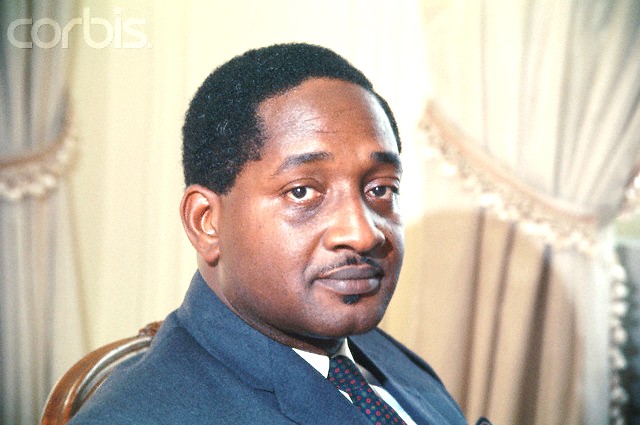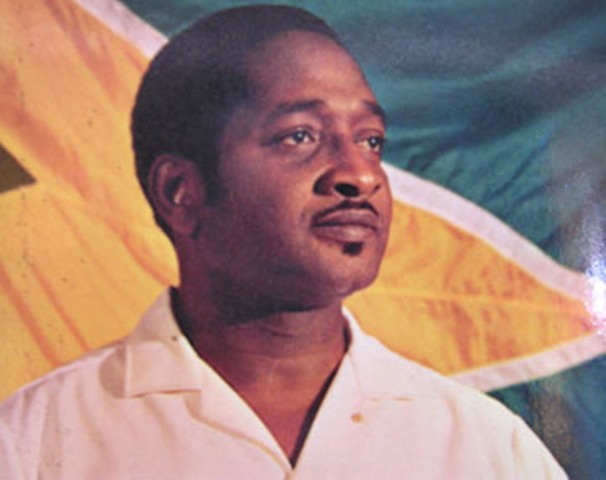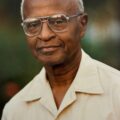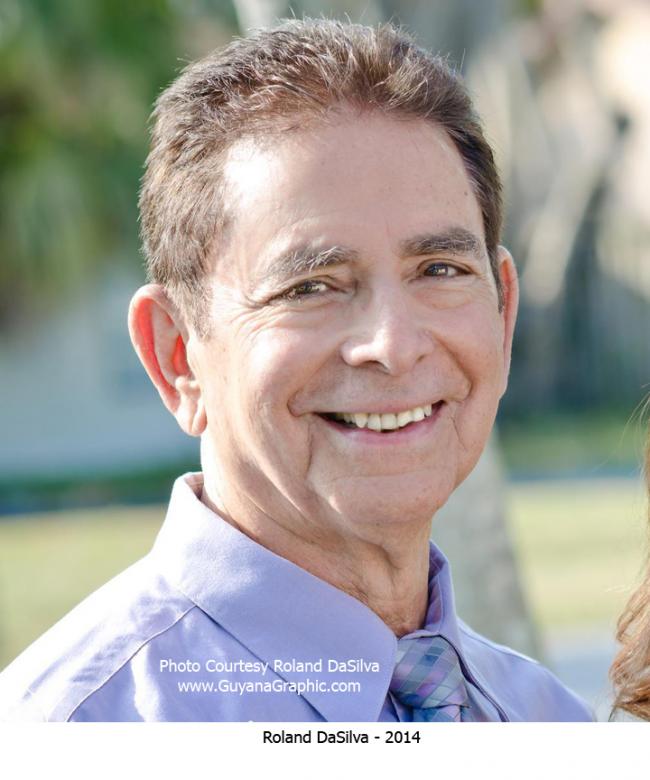Linden Forbes Sampson Burnham
February, a month to reflect on his legacy and Guyana’s republican status.
Linden Forbes Sampson Burnham (LFSB) was born on 20th February 1923. He rose through the rank of Queen’s College scholar, lawyer, Senior Council, Mayor of Georgetown, President General of the Guyana Labour Union, a founding leader of the PPP, Founder-Leader of the PNC, member of the National Assembly, Premier, Prime Minister and to Guyana’s first President with Executive responsibility. Much has been said and will continue to be said of this son of the soil. A complex figure and personality, simultaneously vilified and loved, he will continue to be a subject of intense debates, analyses and reviews throughout the ages. Whether it was fate, intent or accident his politics will to continue rivet this nation because he has laid a foundation that cannot be uprooted, don’t matter how hard some may try.
As Guyanese celebrate our Republican status- secured under LFSB leadership- which made us final heirs of our destiny, a destiny to mould consistent with the national motto One People One Nation One Destiny, the time is opportune to examine an effort LFSB made in pursuant of this aspiration. Culture, i.e., our identity/lived experiences.
Though Cuffy and others could not have known the first major revolt for freedom in this part of the hemisphere, led by them on the 23rd February 1763, would have come close to the birthdate of a man accused of tying it to Guyana achieving Republican status so he can be celebrated, it was he who played a significant role in shaping our culture. In 21st February Kaieteur News, PPP MP Hydar Ally in writing about the 44the anniversary boasts “Guyana today is a proud nation where there is ethnic harmony” and tactlessly tries to credit this to the PPP. But has become customary with Guyana’s petty politics, the one responsible for laying this ground work will never be credited. And so it is task to those who care about an honest account of our history to add their voices to the public information.
When LFSB assumed office as Premier in 1964 after defeating Cheddie Jagan the political landscape was splattered with ethnic (race, gender, class, religion) animosity, distrust and intolerance. It was the administration of LFSB that set about assuring this nation that his government will be a government of all the people- that all races are important to his administration and proceeded to act in accordance with. LFSB met with religious groups and while I possess no evidence what transpired at these meetings, a gauge can be made from what ensued by the way of legislations and the administration’s policies.
Denominational schools came under a national education policy that was non-religious making it possible for all to have access to the classroom based on merit and location, not belief. And given religious practices in earlier times were primarily based on race, this barrier was removed creating an atmosphere of racial intermingle that would have ensured learning from and respect for each other. Education became co-equal and free and later from nursery to university, eliminating discrimination against groups based on gender or class (money). Food feeding programmes, free text and exercise books, and later free uniforms were instituted which ensured hunger would not be a deterrent to going to school and also served as incentive for attending school, equally as the absence of money would not prevent learning and the presence of free books and uniforms incentives for learning. Education was also made compulsory.
The misplaced superiority with regards to religion and denomination was replaced by making all religion legal and the repealing of the Obeah Ordinance Act. Our right to religious worship and identity was not longer a divisive issue but one of unified position of the right to worship in peace and choice respected. The so-called decried baby father/mother and derogatory name (bastard) ascribed to children born out of wedlock and denied fraternal inheritance because of a choice they had no control over were decriminalised. And while some decried this and see it as negative and predominant in the African community, it should be reminded Hindu and Muslim were treated with similar contempt prior to LFSB since their unions, minus the Western Marriage Certificate was equally seen as illegitimate cohabiting, looked down on and their children also seen as bastards. LFSB corrected this social segregation by acceptance of the unions of all religious groups and allowed religious leaders to be marriage officers.
Significant days in the three main religious calendars became national holidays. No longer were national attention and importance placed only to the Christian calendar. In the classroom teachers taught what these holidays meant, got students to do assignments on them, and had fellow classmates of the religious persuasion shared their experiences during this period. And yes, with any change some snickered and turned up our noses but the process for respect had begun, fostered and encouraged that today we speak to and participate in them with ease and respect.
Our education content was no longer solely driven by European interpretation of reality; but positively encapsulated the stories of the enslaved, indentured, maroons, Green Days by the River, Ways of Sunlight, Corentyne Thunder, in real life Caribbean/Guyana encounters. The rote methodology of teaching was expelled as equal as the measure of a person was based on how well s/he could mimic the British culture and customs. Pride of place was placed in how well we could unleash and apply critical thinking skills in pursuant of an educational base to capitalise on the resources at our disposal in furtherance of our development and self-reliance. And yes, some fought it and still so. For political reason, hate, ego and ignorance- a practice that has contributed to the underdevelopment of Guyana and for another focus.
In the public sphere no longer were race, colour, religious, class and where one lived determinant factors for certain jobs. LFSB adumbrated a policy of content of character and willingness to serve.
Places were named and renamed in keeping with our identity, struggles and aspirations and became sources of pride. Cuffy, Damon, Quamina were no longer infidel niggers and disobedient slaves but national heroes exemplifying the courage/importance of standing up for what is right rather than live in the shadow of another or be enslaved. The Enmore Martyrs were no longer bound coolies who didn’t know their place in the social order but a group who was prepared to challenge a social order that disrespected them. Our Amerindians brothers and sisters were given their national pride of place in our National Emblem, national honouree titles, the Umana Yana (meeting place) that hosted local and foreign events, encouraged into mainstream/coastland Guyana, remained the airport Timehri which is now renamed Cheddie Jagan by the PPP. The Portuguese (Peter D’Aguiar), Chinese (Arthur Chung), European et al, played national and prominent roles and we learnt and benefitted for all these cultures.
When countries like Canada, USA and China boast of producing local goods and services and proudly tout the Made in….sign, at home when LFSB sought to carry us down this path of self-reliance and pride, political opponents said he wanted to re-enslave us. But in spite of this bad-mouthing Guyana was to have emerged a nation with pride and those who believed in themselves rose to the challenges LFSB encouraged, to see the sky as the limit and there wasn’t anything another country could do that we couldn’t do or do better. That self-confidence and determination made us realised we too can make refrigerator and freezer (GRL) stereos and radio (GRECO), tapir vehicle (AILIM), then the world’s longest single floating bridge (Demerara Harbour Bridge), bridges (Canjie) lasting highway (Linden/Soesdyke) road networks bridging the three counties, hinterland and backdams/farmland to main roads (e.g. Canal No.1 and Canal No.2); irrigation (e.g. Tapakuma Irrigation Project), airline ( Guyana Airways), local food processing and canning industries, Sanata Textile, Kimbia, stoneware, glass factory, claybrick factory, etc. Salt fish, cassava pone, black-pudding, black-pudding, souse, fried rice, garlic pork, coo-up, metengee, chowmein, cassava bread, pepper pot, curried meats/stews, rice porridge, plantain chips, preserved fruits for that black cake, etc.
So when Hydar Ally talks about “ethnic harmony, identity, nationhood and respect for multiculturalism” the person whom this credit is due is LFSB! It was he who laid the foundation. Though the date of the Berbice Slave Rebellion has come to be associated with celebration after hard work (Mashramani named after Guyana’s First People) as we celebrate this hard work- emancipation, end of indenturedship, independence and republic- there remains much more to be done, including an intensified effort to stop the PPP attempts at ethnic disintegration and falsifying/rewriting history.






